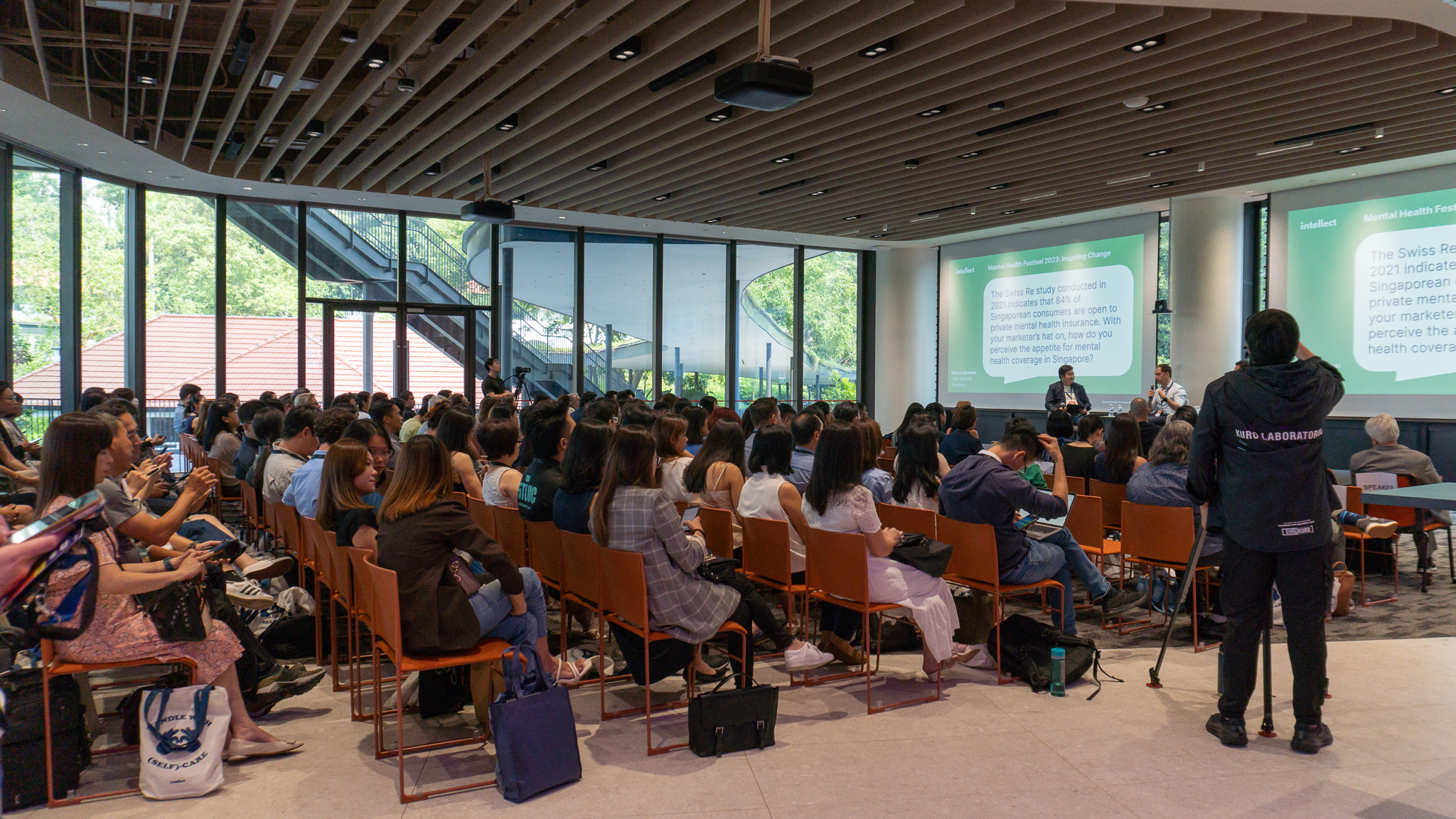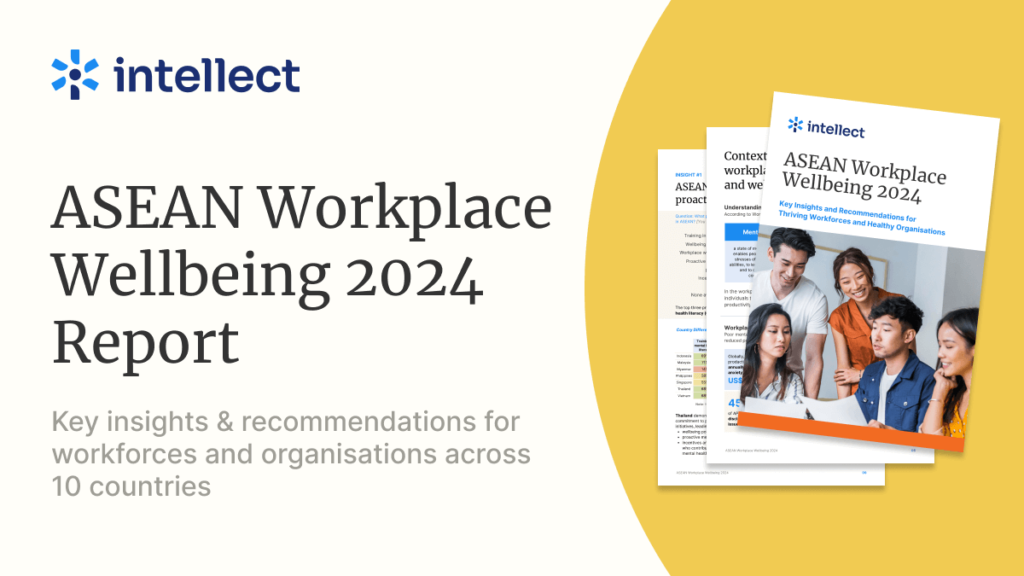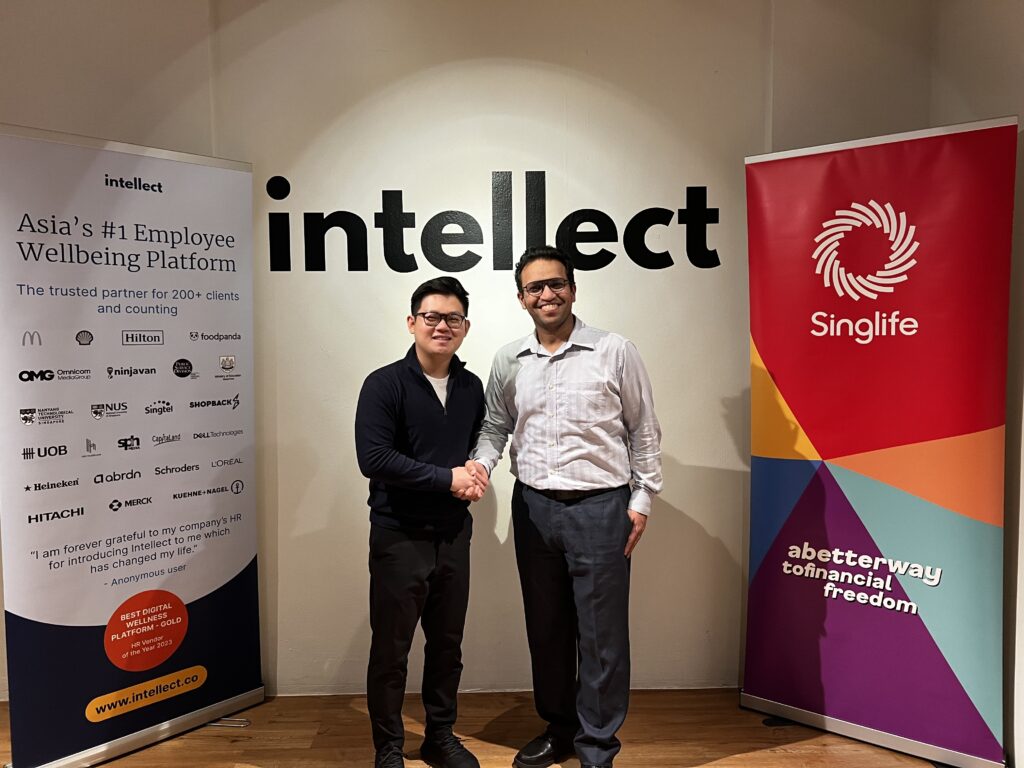In September, Intellect proudly presented our annual tentpole event, Mental Health Festival 2023, preceding World Mental Health Day on October 10, 2023. Over three days, esteemed thought leaders in business, human resource, and healthcare convened in a series of virtual and in-person programs to share their best practices for employee wellbeing.
Further enriching the discourse are notable figures, including a former Nominated Member of Parliament in Singapore and social media influencers, who shared their lived experiences and newfound perspectives generously. What have our attendees learnt about tending to their own mental wellbeing and supporting their loved ones?
How to practise self-care
1. The secret to thriving as an introvert? “Battery” management.
Just as you wouldn’t allow your phone’s battery to fall below 10%, why should you let yourself operate on empty? In his session titled “Unlocking Employee Engagement & Wellbeing with Authenticity & Resilience,” Nathan Andres, Author and former Chief People Officer of The Body Shop, delves into the four essential energy sources that drive modern life: physical, emotional, mental, and spiritual.
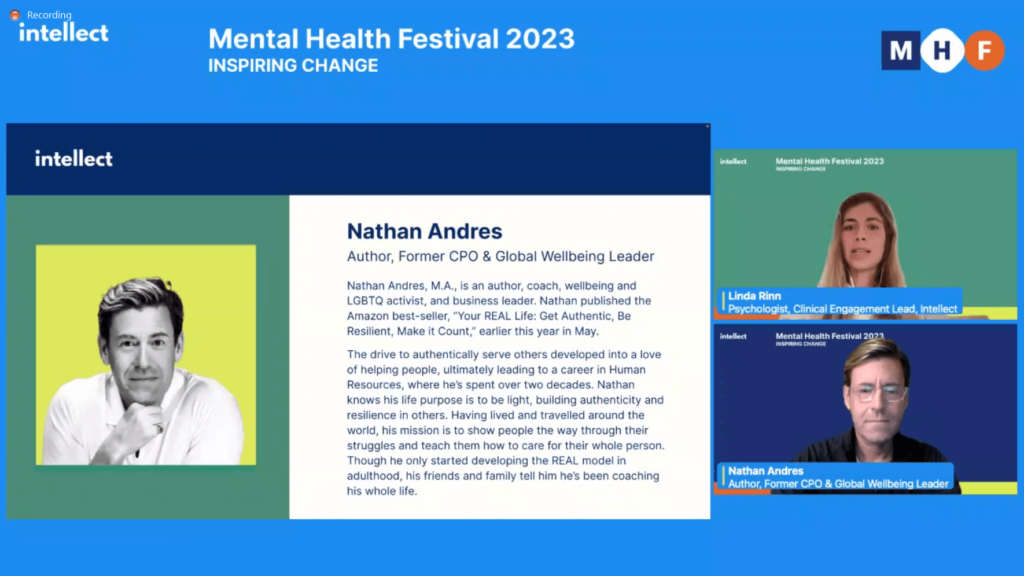
“Knowing where your energy comes from, how we manage it, what drains it, and how we focus enables us to be resilient,” he said, underlining how resilience ultimately fosters employee engagement and a culture of wellbeing.
When asked about strategies for introverts to thrive in workplaces that may seem to favour extroverts, Nathan, an introvert himself, emphasised the significance of energy management.
Catch up on his session here:
“When we look at how you want to show up in groups and demonstrate good leadership, it’s really about how you want to bend back and forth (between introversion and extroversion) to ensure you’re managing your energy in the right way while being effective.”
In his perspective, coaching plays a vital role in helping introverts and ambiverts find this equilibrium and silence unconstructive thoughts from their inner critic.
To explore further how coaching can benefit your organisation, even if you already have exceptional managers in place, click here.
2. It’s lonely at the top. What can leaders do about it?
Coaching can also help enhance one’s self-awareness, a vital element for success, particularly among organisational leaders. This insight was highlighted by Shweta Shukla in her session titled “Empowering Leaders: Charting a Course to Mental Health Ownership and Sustainable Cultures.”
In her perspective, the foremost task for any leader involves identifying their triggers, recognising what fuels their energy, and carving out personal space within their leadership roles.
Catch up on her session here:
“Whether you like it or not, teams in organisations need a lot from the leader. But that doesn’t mean you have to be formidable…but you always have to be in touch with your own humanity,” she shared.
Shweta herself turns to the National Gallery of Singapore when she finds herself in a challenging situation. Being surrounded by art has a unique calming effect on her, allowing her to recalibrate before plotting her next course of action. Having a support system is also invaluable, she said.
“It can be very, very lonely at the top. Often, in leadership positions, you don’t have the privilege of having a community,” she said, adding that community can be sought within or outside the organisation, or even in individuals leaders have worked with in the past.
3. Don’t wait for a diagnosis to take action. Prevent it.
We’re cognisant of the age-old adage that prevention is better than cure. It’s why we religiously take vitamins, hit the gym, and visit the dentist biannually. But, intriguingly, when it comes to mental health, this fundamental principle often escapes our grasp.
In her session, “Leading from Within: Why Mental Wellbeing is the Missing Catalyst of Organisational Success,” Anthea Indira Ong, the Founder of WorkWell Leaders, delivered a powerful message: “You can experience a state of languishing without a diagnosable mental illness, just as you can flourish with one.”
Catch up on her keynote here:
The core idea here revolves around viewing mental health as a spectrum, a continuum. Are you grappling, merely surviving, or thriving? In the past, any discussion of mental health invariably pointed to an absence thereof, implying an ailment or disorder. This is inevitable, given that mental health care is traditionally targeted at the latter. But times have changed. Today, when we discuss mental wellbeing, everyone has a stake in it.
“Mental health isn’t just about illness. It’s about managing and coping stress. Good stress, tolerable stress, and traumatic stress,” asserted Associate Professor Daniel Fung, CEO of Singapore’s Institute of Mental Health (IMH).
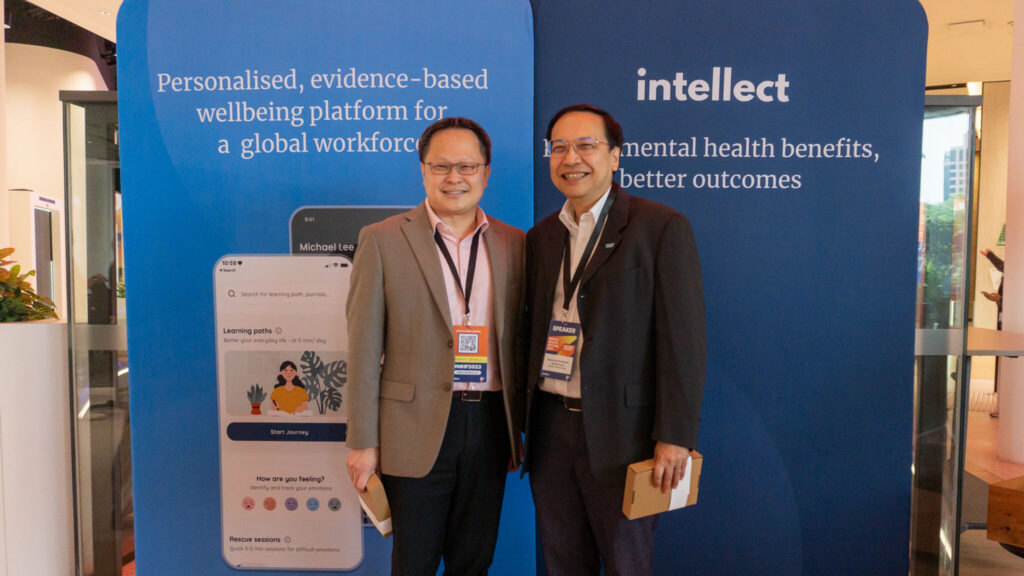
How to support others
4. Use “emotional language”, or coin your own.
Think about the last time you felt down. Were you sad, mad, scared, embarrassed, or guilty? The words we use help us understand and handle our feelings. If you ever struggle to put your emotions into words, the Emotion Wheel can be a handy tool.
“Something very simple that I do is talk to my kids about their emotions, or to use emotional language to label their experience and see whether it connects with them,” said Goh Zhengqin, Deputy Head of Health & Wellbeing at National University of Singapore, in the session, “From Silence to Strength: Empowering Young Adults to Reach Out in an Era of Misinformation.”
Catch up on their discussion here:
“It’s just helping them to understand their own emotions. That in itself allows them to talk about it, in contrast with the so-called traditional Asian parenting. This is the generation (with whom) we have that opportunity to make that change.”
But what can you do when your loved ones seem closed off and reluctant to communicate? In such situations, even something as straightforward as sending an emoji can be remarkably helpful, as suggested by Hanli Hoefer, a Presenter and Actor:
“I realised that my brother isn’t great at asking for help, and I remember telling him that hey, you don’t need to call me. You can just send me an emoji and I’ll know that you need a lifeline. Maybe saying ‘Hey, I need support’ isn’t your language, but let’s find one that works for us.”
5. Notice signs of suicide ideation. Don’t let them slide.
It’s a scenario we hope to never encounter, but one we must be prepared for: How should we respond when someone hints at having thoughts of suicide? Our instinct tells us we should reach out, but we often don’t know how to go about it. This is where Mental Health First Aid, a course for which Intellect is the licensed provider, becomes invaluable.
During his session, “Bystander No More: Practical Tips From the Mental Health First Aid™ Toolkit,” Dr. Oliver Suendermann, VP of Clinical at Intellect, asserts that the worse thing we can do is to say nothing and dispels the myth that asking someone if they’re contemplating suicide can implant such thoughts in their mind.
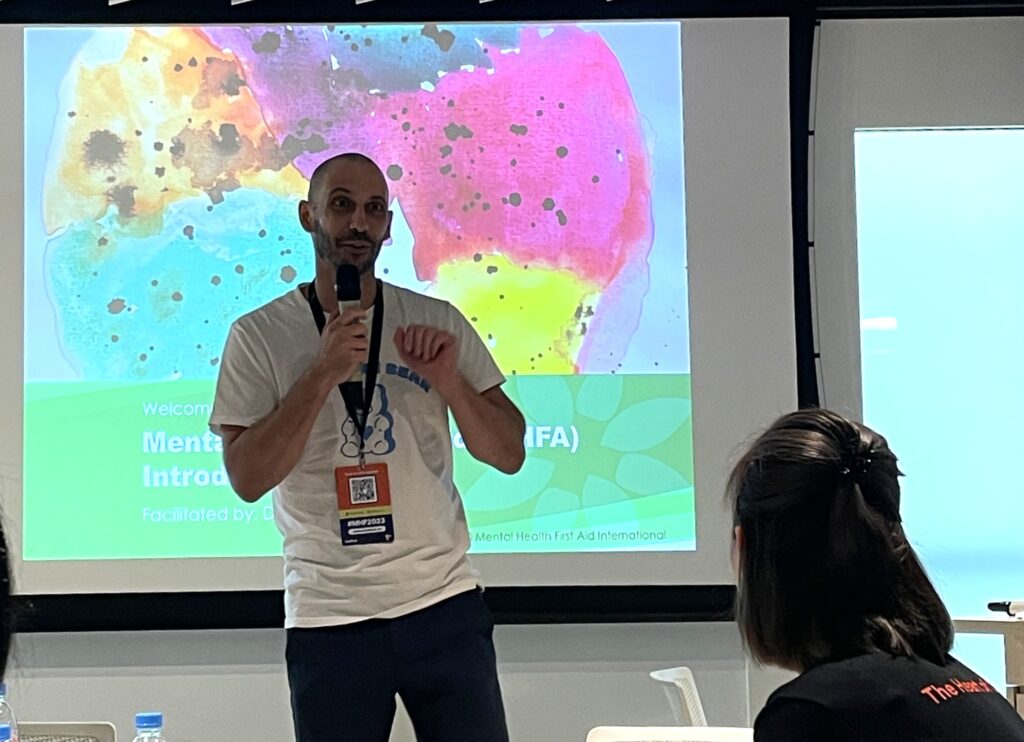
Here are some recommendations:
| Do’s: | Don’ts: |
| “Are you thinking about ending your life?” | “You’re not thinking of doing something foolish, are you?” |
| “It might be a difficult topic, but I’m concerned about you. Are you having thoughts of suicide?” | “You’re not thinking about harming yourself, are you? That’s so selfish…” |
6. Stay informed about resources in the local community.
As much as we wish to support our loved ones, it’s crucial to recognize our own limitations and guide them to the appropriate support when necessary. In the session titled “It’s a Marathon, Not a Sprint: Self-Care Tips for Caregivers To Go the Distance,” Cindy, a caregiver to her daughter Valerie, who is recovering from schizophrenia, shared her motivation for seeking help.
In the session titled “It’s a Marathon, Not a Sprint: Self-Care Tips for Caregivers To Go the Distance”, Cindy, caregiver to her daughter Valerie, who is recovering from schizophrenia, shared the importance of coming to terms with one’s reality.
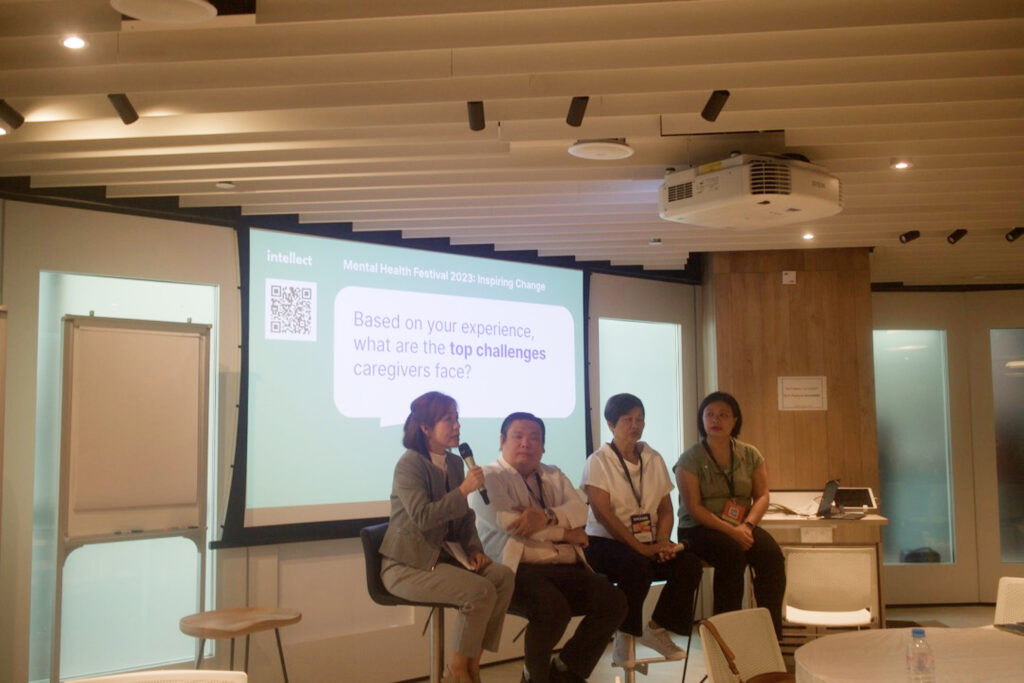
“Acceptance is very important. Once you accept it, you will accept help,” she said. Her journey led her to the Caregivers Alliance Ltd. (CAL), a step that made a profound difference. So much so that she and Valerie now serve as Programme Managers at CAL, a way of giving back and finding a renewed sense of purpose.
According to See Yen Theng, Chief of Caregiving and Community Mental Health Division at the Agency for Integrated Care (AIC), many caregivers don’t identify themselves as such, as they perceive their caregiving responsibilities as acts of filial piety that don’t warrant recognition. Consequently, they miss out on access to support and, most importantly, the realisation that they are not alone in their journey.
Mental Health Festival 2023
The key takeaway is crystal clear: Mental health is everyone’s business. With self-awareness, empathic communication, and access to community resources, we can transform awareness into tangible actions and turn well-meaning intentions into measurable results.
Read our summary of Mental Health Festival 2023 for organisations or reach out to Intellect for a demo.


